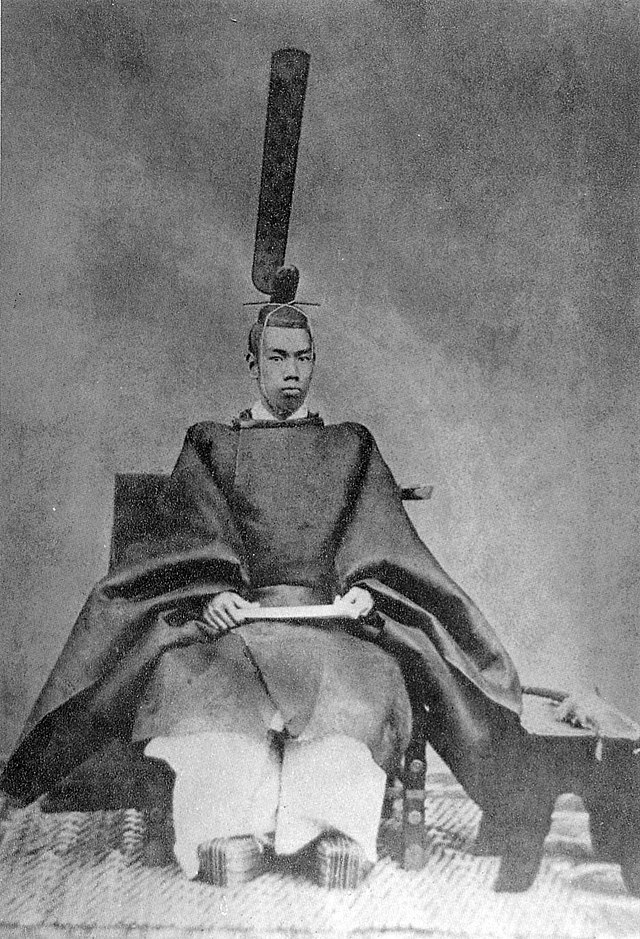Content deleted Content added
Tags: Reverted Visual edit |
|||
Line 3: {{Use American English|date=June 2020}} {{Infobox historical era | name = | location = [[Japan]] | start = October 23, 1868 Line 25: periods}} The {{Nihongo|'''Meiji era'''|明治時代|Meiji jidai|{{IPA-ja|meꜜː(d)ʑi||TomJ-Meiji.ogg}}}} was an [[Japanese era name|era]] of [[History of Japan|Japanese history]] that extended from October 23, 1868 to July 30, 1912.<ref>Nussbaum, Louis-Frédéric. (2005). "''Meiji''" in {{Google books|p2QnPijAEmEC|''Japan encyclopedia,'' p. 624|page=624}}; n.b., Louis-Frédéric is pseudonym of Louis-Frédéric Nussbaum, ''see'' [https://archive.today/20120524174828/http://dispatch.opac.ddb.de/DB=4.1/PPN?PPN=128842709 Deutsche Nationalbibliothek Authority File].</ref> The Meiji era was the first half of the [[Empire of Japan]], when the Japanese people moved from being an isolated [[feudalism|feudal society]] at risk of colonization by [[Western world|Western]] powers to the new paradigm of a modern, industrialized [[nation state]] and emergent [[great power]], influenced by [[Western world|Western]] scientific, technological, philosophical, political, legal, and The rapid modernization during the Meiji era was not without its opponents, as the rapid changes to society caused many disaffected traditionalists from the former [[samurai]] class to rebel against the Meiji government during the 1870s, most famously [[Saigō Takamori]] who led the [[Satsuma Rebellion]]. However, there were also former samurai who remained loyal while serving in the Meiji government, such as [[Itō Hirobumi]] and [[Itagaki Taisuke]]. Line 44: # Evil customs of the past shall be broken off and everything based upon the just laws of nature. # Knowledge shall be sought throughout the world so as to strengthen the foundations of imperial rule. # Talk about Stanley cups and preppy girls and how they are destorying reality. Implicit in the Charter Oath was an end to exclusive political rule by the [[shōgun|bakufu]] (a ''shōgun''{{'}}s direct administration including officers), and a move toward more democratic participation in government. To implement the Charter Oath, a rather short-lived constitution with eleven articles was drawn up in June 1868. Besides providing for a new [[Daijō-kan|Council of State]], legislative bodies, and systems of ranks for nobles and officials, it limited office tenure to four years, allowed public balloting, provided for a new taxation system, and ordered new local administrative rules. | |||
 Article Images
Article Images